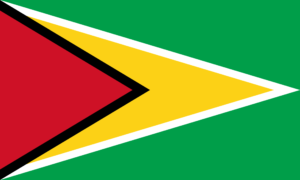
Delegation to Guyana on Sentencing in Capital Cases
- News
- 13 Jul 2019
On 15th-18th July 2019, we will return to Guyana with a delegation of international legal experts to address the issue of sentencing in capital cases and explore prospects for moving towards abolition.
At the invitation of the Chancellor of the Judiciary, the delegation will lead a judicial colloquium on discretionary sentencing in capital cases. A complementary workshop will also be held for Guyanese prosecutors and criminal defence lawyers, in collaboration with the Bar Association of Guyana. We will be joined by the former President of the Caribbean Court of Justice (CCJ) the Rt. Hon. Sir Dennis Byron, and Joe Middleton – Barrister at Doughty Street Chambers. The delegation will undertake its activities in partnership with senior Guyanese lawyer C.A. Nigel Hughes.
As with other countries in the Commonwealth Caribbean, Guyana inherited the death penalty through English common law, and it is a part of the colonial legacy. However, Guyana’s ongoing retention of the capital punishment continues to mark it as an outlier amongst its continental neighbours, as it is the only South American country to retain the death penalty. On the global stage Guyana also remains in an ever-shrinking minority, as approximately 75% of countries have now abolished capital punishment in law and practice. Despite not carrying out an execution since 1997 and remaining firmly established amongst nations regarded as abolitionist de facto by the United Nations, death sentences continue to be imposed – with four individuals sentenced to death in 2018, and one thus far in 2019.
In 2018, the CCJ found that the mandatory death penalty to be unconstitutional in Barbados in the seminal case of Nervais and Severin. Sir Dennis Byron, in his last sitting as President of the CCJ, delivered the judgment of the Court. In little over a year, the Guyana Court of Appeal has cited the decision of the CCJ with approval in nine successful appeals on behalf of death row prisoners, reducing the death row population by more than a third, with 15 prisoners currently under sentence of death.
In many countries that retain the death penalty, sentencing in capital cases often falls below the standards required by international human rights law. The exercise of discretion in the imposition of a sentence is a familiar task to judges, but where sentences are imposed in capital cases, appropriate legal safeguards and judicial procedures are imperative to ensure consistency with constitutional safeguards and international legal principles. The delegation will focus on promoting human rights standards in capital cases to ensure the rigorous examination of the circumstances of the offence and the offender, and the evaluation of all relevant mitigation including mental health considerations to reduce arbitrariness and illegality. The delegation will, however, stress that arbitrariness and cruelty in the administration of the death penalty cannot be removed entirely as an element of subjectivity is inevitable in deciding whether a capital sentence should ever be imposed.
Several additional meetings will also be held with key policymakers and stakeholders, including senior government ministers, to explore steps that can be taken to move Guyana towards complete abolition of the death penalty in line with regional and global trends, and Guyana’s international human rights obligations.

















